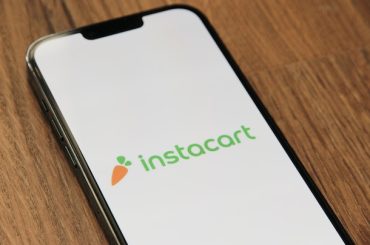The rapid growth of mobile communications has changed the way businesses interact. Employees connect from anywhere with any device, using multiple modes of communication, including messaging, video, phone, text, and social media. These forms of flexible communications enable employees to be productive in ways that traditional on-premise systems do not support.
With the proliferation of smartphones and tablets that offer much of the functionality of PCs, combined with the pervasiveness of inexpensive broadband Internet access, businesses are increasingly working around the clock across geographically dispersed locations, and their employees are using a broad array of communications devices and utilizing text, along with voice and fax, for business communications.
These changes have created new challenges for business communications. Traditional on-premise systems are generally not designed for workforce mobility, “bring-your-own” communications device environments, or multiple communication channels, including text. Today, businesses require flexible, location- and device-agnostic communications solutions that provide users with a single identity across multiple locations and devices.
RingCentral is a leading provider of software-as-a-service, or SaaS, solutions for business communications. In this strategy story, we analyzed the business model of RingCentral and understood what does RingCentral do and how does RingCentral work.
What does RingCentral do? How does RingCentral work?
RingCentral is a leading provider of global enterprise cloud communications, video meetings, collaboration, and contact center software-as-a-service (“SaaS”) solutions. RingCentral works on a subscription-based business model.
RingCentral aims to disrupt the large business communications and collaboration market through innovative, cloud-based communication and contact center solutions by providing flexible and cost-effective solutions that support mobile and distributed workforces.
As of December 2021, RingCentral had customers from a range of industries, including financial services, education, healthcare, legal services, real estate, retail, technology, insurance, construction, hospitality, and state and local government, among others. RingCentral sells its solutions to enterprise customers and small and medium-sized businesses.
RingCentral enables convenient and effective communications for organizations across all their locations and employees, enabling them to be more productive and responsive.
RingCentral’s cloud-based solutions are designed to be easy to use, providing a global user identity across devices, including smartphones, tablets, PCs, and desk phones.
RingCentral’s cloud-based solutions are location and device independent and better suited to address the needs of modern mobile and global enterprise workforces than are legacy on-premise systems.
Through its open Application Programming Interface (API) platform, RingCentral enables third-party developers and customers to integrate RingCentral’s solution with leading business applications to customize their business workflows. RingCentral benefits from both the shift to mobile and distributed workforces and the migration of hardware on-premise-based communication systems to cloud-based software solutions.
RingCentral’s Solutions
RingCentral’s cloud-based business communications, collaboration, and customer engagement solutions function across multiple locations and devices, including smartphones, tablets, PCs, and desk phones, allowing for communication across multiple modes, including high-definition (“HD”) voice, video, SMS, messaging and collaboration, conferencing, online meetings, and fax.
RingCentral’s solutions enable a more productive and dynamic workforce. They are architected using industry standards to meet modern business communications and collaboration requirements, including workforce mobility, “bring-your-own” communications device environments, and multiple communications methods.
RingCentral’s solutions are delivered using a highly available, rapidly, and easily scalable infrastructure, allowing RingCentral’s customers to add new users regardless of where they are located within RingCentral’s service footprint and promoting business continuity.
RingCentral’s solutions go beyond the core functionality of existing on-premise communications solutions by providing additional key benefits that address the changing requirements of the business to allow business communications using voice, HD video web conferencing, SMS, team messaging, collaboration, fax, and social media.
Technology
RingCentral’s platforms are hosted both in private and public clouds. RingCentral’s private clouds are built on a highly scalable and flexible infrastructure comprised of commercially available hardware and software components.
RingCentral’s private cloud is served from multiple data centers and third-party co-location facilities located in several cities in the United States and worldwide. RingCentral’s data centers are designed to host mission-critical computer and communications systems with redundant, fault-tolerant subsystems and compartmentalized security zones.
What is the business model of RingCentral?
Value Proposition
Location Independence: RingCentral’s cloud-based solutions connect distributed and mobile users, enabling employees to communicate with a single identity whether working from a central location, a branch office, on the road, or at home.
Global: RingCentral Global MVP connects multinational workforces globally while reducing the complexity and high costs of maintaining multiple legacy private branch exchanges (“PBX systems”) with a single global cloud solution.
Device Independence: RingCentral’s solutions work with a broad range of devices, including smartphones, tablets, PCs, and desk phones, enabling businesses to implement a “bring-your-own” communications device strategy successfully.
How does Microsoft make money: Business Model & Strategy
Instant Activation and Easy Account Management: RingCentral’s solutions are designed for rapid deployment and ease of management. RingCentral’s intuitive graphical user interfaces allow administrators and users to set up and manage their business communications system with little or no IT expertise, training, or dedicated staffing.
Analytics: RingCentral’s solutions drive business decisions through a single, real-time intuitive interface with configurable, out-of-the-box KPIs and metrics for monitoring all users, calls, meetings, devices, numbers, and queues, along with call quality scores and parameters.
Scalability: RingCentral’s cloud-based solutions scale easily and efficiently with the growth of RingCentral’s customers. Customers can add users, regardless of location, without purchasing additional infrastructure hardware or software upgrades.
Products and Offerings
RingCentral has a portfolio of subscription-based cloud-based offerings made available at different monthly rates, varying by the specific functionalities, services, and number of users. The offerings include:
RingCentral MVP
RingCentral MVP (formerly RingCentral Office), its flagship solution, provides a unified experience for communication and collaboration across multiple modes, including HD voice, video, SMS, messaging and collaboration, conferencing, online meetings, and fax.
This subscription is designed primarily for businesses that require a communications solution, regardless of location, type of device, expertise, size, or budget. Businesses can connect users working in multiple office locations on smartphones, tablets, PCs, and desk phones.
RingCentral MVP is available in four editions: Essentials, Standard, Premium, and Ultimate. The features, capabilities, and price per user increase from Essentials to Ultimate.
The solution capabilities include high-definition voice, call management, mobile applications, business SMS and MMS, fax, team messaging and collaboration, audio/video/web conferencing capabilities, out-of-the-box integrations with other cloud-based business applications, and business analytics and reporting.
RingCentral customer engagement solutions
- RingCentral Contact Center: RingCentral Contact Center is a collaborative contact center solution that delivers an AI-powered omnichannel and workforce engagement solution with integrated RingCentral MVP.
- RingCentral Engage Digital: RingCentral Engage is a cloud digital customer engagement platform that allows enterprises to interact with their customers through a single platform across all digital channels, including mobile and in-app messaging, several social channels, live chats, and email.
- RingCentral Engage Voice: Engage Voice is a cloud-based outbound/blended customer engagement platform for midsize and enterprise companies. The platform provides automated dialing capabilities to help accelerate the sales process and reduce the time it takes sales teams to reach prospects.
RingCentral Video
RingCentral Video (formerly Glip) is a smart meeting service with RCV video and team messaging capabilities. The solution offers high quality and high availability video and audio conferencing, seamlessly integrated with team messaging, file sharing, contact, task, and calendar management.
What does Oracle do? How does Oracle make money: Business Model
Revenue Model
RingCentral made $1.6 billion in 2021. RingCentral has a subscription-based business model. RingCentral generates revenues primarily from the sale of subscriptions for RingCentral’s cloud-based services, which include RingCentral MVP, RingCentral customer engagement solutions, and RingCentral Video.
RingCentral focuses on acquiring and retaining RingCentral’s customers, adding value to their experience, and increasing their use of RingCentral’s solutions. As their needs change, customers add users to services, upgrade to premium subscription editions, which provide additional features and functionality, and expand their use of other solutions.
RingCentral’s revenue growth has primarily been driven by RingCentral’s flagship RingCentral MVP and RingCentral customer engagement solutions product offering, which has resulted in an increased number of customers, increased average subscription revenue per customer, and increased retention of RingCentral’s existing customer and user base.
RingCentral also generates revenues through sales of RingCentral’s subscriptions and products by resellers, strategic partners, and carriers. “Other revenues” include product revenues from selling pre-configured phones and professional services.
















